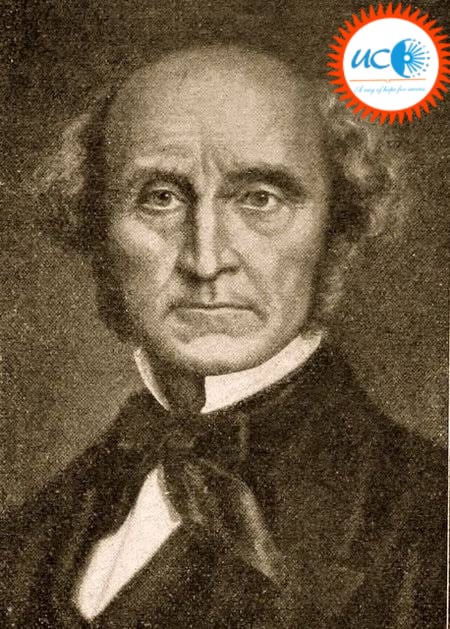Discuss the contribution of John Stuart Mill and Jeremy Bentham to Ethics. What are the limitations to their approach?
J.S. Mill was a British philosopher. He is a prominent economist, political philosopher and moreover he has worked as a civil servant in the East India Company. He is the reformist of utilitarianism and the best of the individualists. He is a liberalist, feminist, supporter of utilitarianism, representative democracy and economic freedom.
Jeremy Bentham was an English philosopher. Jurist, economist and Social reformer. He was regarded as a classical philosopher and the founder of modern utilitarianism. He was rightly regarded as the foremost apostle of the practical and the leader of Utilitarian school of England. He has been described as one of the oddest figures in the history of political thought.
Utilitarianism is an ethical doctrine pioneered by Jeremy Bentham and J.S. Mill. It is defined as the doctrine of ethics which advocates that actions are right if they are useful for the benefit of the majority and that an action is right so far as it promotes happiness. Utilitarian ideas are fundamental to modem ethical theory and remain firmly ensconced in contemporary intellectual life.
Contributions of John Stuart Mill and Jeremv Bentham to Ethics:
- Utilitarianism has three essential elements:
- Whether an action is right or wrong is determined solely by its consequence..
- The value of the consequences of an action is assessed in terms of the amount of happiness or well-being caused.
- In assessing the total happiness caused to a number of people, equal amounts of happiness are to
have equal value, no one person’s happiness having greater value than that of another’s.
- Significance of Utilitarianism in governance:
- The theory of utilitarianism is a simple theory which helps in formulating policies for welfare of the maximum number of people with quick implementation.
- The principle of utilitarianism can be employed to formulate better policies and make informed decisions as the priority of the government is to maximize benefits from programs and policies and at the same time minimize the losses and damages.
Here lies a direct connection between theory and practice. An officer can employ the utilitarian ethics to minimize the utility of the resources at his/her disposal and impact maximum lives.
- One advantage of utilitarianism is that it shows how moral questions can have objectively true answers. Often, people believe that morality is subjective and depends only on people’s desires or sincere beliefs.
Utilitarianism. however, provides a method for showing which moral beliefs are true and which are false
Limitations of their approach:
- Overlooking: Governance is not a zero sum-game and one must be cautious to not overlook those who are outside the purview of the utilitarian policies.
- Alienation of deprived section: Utilitarian policies benefit the majority, thus repeated emphasis on utility may lead to alienation of the deprived section. “The greatest amount of good for the greatest number” is a good approach to governance but inclusivity is equally important.
- Different notion: The doctrine has been criticized by many for its failure to acknowledge that people can have different notions of pleasure in different socio-economic contexts. As we cannot predict the future, it is difficult to know with certainty whether the consequences of our actions will be good or bad.
- Promotion of unethical practices: Primacy to the outcomes and not the means can promote unethical practices among administrators and people in general.
- Some examples critical to the consequential theory of Utilitarianism:
- Ifajadge can prevent riots that will cause many deaths only by convicting an innocent person of a crime and imposing a severe punishment on that person, act utilitarianism implies that the judge should convict and punish the innocent person.
- Ifs doctor can save five people from death by killing one healthy person and using that person’s organs for life-saving transplants, then act utilitarianism implies that the doctor should kill the one person to save five.
- Ifa person makes a promise but breaking the promise will allow that person to perform an action that creates just slightly more well-being than keeping the promise will, then act utilitarianism implies that the promise should be broken.
“Means are as important as ends” -Mahatma Gandhi. Therefore, the theory of utilitarianism, though useful in formulation of certain policies for welfare of a large number of people but cannot be treated as the end as a civil servant, should be cautious of both- means and ends using the highest amount of intelligence.





